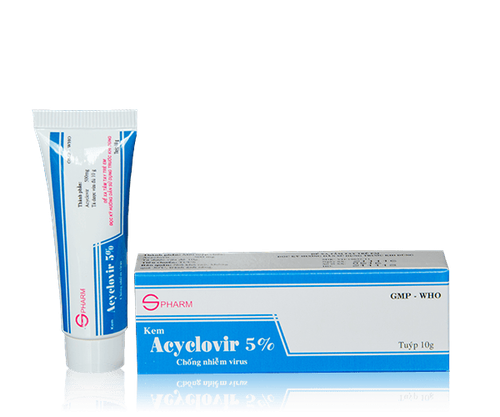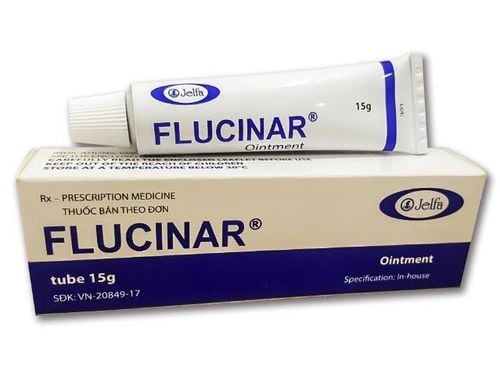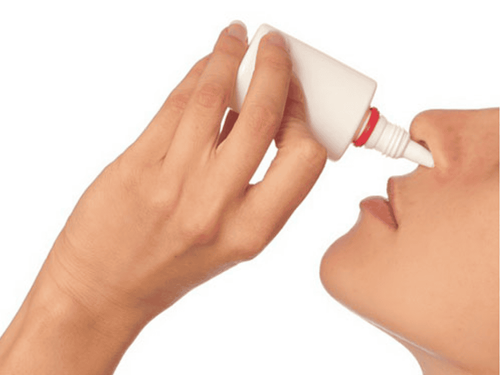This is an automatically translated article.
Allerfar is an antihistamine drug, the main ingredient is Chlorpheniramine maleate with a strength of 4 mg. The drug is often indicated in cases of allergic rhinitis, treating other allergic symptoms such as urticaria, allergic conjunctivitis, contact dermatitis...
1. Pharmacodynamics and pharmacokinetics of the drug Allerfar
1.1. Pharmacodynamics Chlorpheniramine is an antihistamine with a more limited sedative effect. In addition, chlorpheniramine has a partial inhibitory effect on acetylcholine secretion, but the effect varies from patient to patient. Chlorpheniramine has an antihistamine effect through the mechanism of antagonizing histamine H1 receptors on cells in the blood vessels, respiratory tract, and digestive tract.
1.2. Pharmacokinetics Chlorpheniramine maleate is well absorbed from the gastrointestinal tract. After 30-60 minutes of oral administration, Chlorpheniramine begins to appear in the blood plasma. Peak concentrations are reached in about 2.5 to 3 hours (average 1-6 hours).
The bioavailability of Chlorpheniramine is about 25 - 50%. Approximately 70% of the drug in the blood is bound to plasma proteins. The average duration of action of the drug is about 4-6 hours.
Chlorpheniramine maleate is rapidly and extensively metabolised. Chlorpheniramine is metabolised to desmethyl–chlorpheniramine and didesmethyl-chlorpheniramine and some unidentified substances.
Chlorpheniramine is excreted unchanged by the kidneys, the excretion dependent on pH and urine flow. Small amounts of the drug were also found in the stool.
2. What are the effects of Allerfar?
2.1. Indications of the drug Allerfar Symptoms of seasonal allergic rhinitis, perennial allergic rhinitis. Other allergic symptoms such as: urticaria, histamine vasomotor rhinitis, allergic conjunctivitis, contact dermatitis, food allergies, serum reactions, angioedema, quincke edema, insect stings, itching in patients with measles or chickenpox . 2.2. Contraindications of Allerfar Allergic or hypersensitivity to any ingredient of Allerfar (excipients: lactose, tapioca starch, povidone, talc, magnesium stearate, yellow tartrazine). Acute asthma attack Symptomatic prostatic hypertrophy. Closed angle glaucoma. Bladder neck stenosis. Gastric ulcer, pyloric stenosis - duodenal obstruction. Breastfeeding Women Preterm infants or infants. In the last 14 days you have used a monoamine oxidase (MAO) inhibitor. 2.3. How to take Allerfar is taken orally, with or without meals. For children under 6 years old, it is best to crush the medicine to avoid the risk of choking.
Dosage of the drug in the treatment of seasonal allergic rhinitis:
Adults and children over 12 years: Start taking 1 tablet at bedtime, then gradually increase over 10 days up to a maximum of 24 mg/day, Each dose is 4-6 hours apart. Children 6-12 years: Start taking 2 mg at bedtime, then increase slowly over 10 days, up to a maximum of 12 mg/day, 4-6 hours apart. Children 2-6 years old: Take 1 mg, 4-6 hours/time, up to 6 mg/day. Children 1-2 years old: Take 1 mg x 2 times/day. The dosage above is for reference only. The specific dose depends on your medical condition and how advanced the disease is. To get the right dose for each patient, you need to consult with your doctor.
2.4. Symptoms of Overdose of Allerfar During the use of Allerfar, if symptoms such as sedation, psychosis, seizures, convulsions, dystonic reactions, cardiovascular pancreatitis, irregular heartbeats appear... It could be a sign of an overdose. If any of the above symptoms appear, you should stop using the drug and seek medical attention immediately. At the hospital, gastric lavage or induce vomiting with ipecacuanha syrup and activated charcoal and bleach can be used to limit drug absorption. Mainly symptomatic and supportive treatment.
3. Allerfar side effects
Drowsiness, sedation, dizziness... are common side effects of Allerfar. Nausea, stomach pain, constipation. Blurred vision, or dry mouth or nose and throat. To reduce symptoms of dry mouth, you can suck on sugar-free candy or chew gum, drink plenty of water. Side effects of inhibition of acetylcholine secretion on the central nervous system and inhibition of acetylcholine secretion in susceptible individuals (patients with glaucoma, prostate enlargement), may be increased.
4. Some cases need to be cautious when using Allerfar
Chlorpheniramine has a very similar chemical composition to dexchlorpheniramine. If you are allergic to dexchlorpheniramine or any of its ingredients, tell your doctor before using it. History of the following conditions: prostate enlargement, urinary tract obstruction, pyloric stenosis, chronic lung disease or dyspnea, glaucoma, cardiovascular disease, hypertension, epilepsy, hyperthyroidism . Adults over 60 years of age may be more sensitive to Allerfar side effects, such as constipation or difficulty urinating. Other side effects such as confusion, drowsiness, and dizziness may increase the risk of falls in older adults. Children may also be more sensitive to the side effects of this drug, which, if present, is usually more euphoric rather than drowsy. The drug has an increased risk of causing decay in patients treated with chlorpheniramine for a long time. Some side effects, such as dizziness, drowsiness, or blurred vision, affect your ability to drive, use machines, or do anything that requires clear vision and alertness. Allerfar 4mg drug has an effect on the fetus. Using Allerfar during pregnancy, especially in the third trimester of pregnancy, can lead to serious reactions such as seizures in the newborn. Use medication only when absolutely necessary and under the direction of a doctor. Chlorpheniramine in Allerfar is excreted in breast milk and may inhibit lactation. Chlorpheniramine may cause reactions in a nursing infant. Depending on the condition and the need to use the drug on the mother, it is necessary to consider either not breastfeeding or not taking the drug.
5. Drug interactions
Monoamine oxidase (MAO) inhibitors may prolong and enhance the anticholinergic effects of antihistamines. Ethanol or other sedatives and opioids may enhance the CNS depressant effects of chorpheniramine. Some products that may interact with this drug are: topical antihistamines (such as diphenhydramine cream, ointment, or spray). Chlorpheniramine is very similar in composition to dexchlorpheniramine. Do not use medicines containing dexchlorpheniramine while using chlorpheniramine.
Please dial HOTLINE for more information or register for an appointment HERE. Download MyVinmec app to make appointments faster and to manage your bookings easily.













